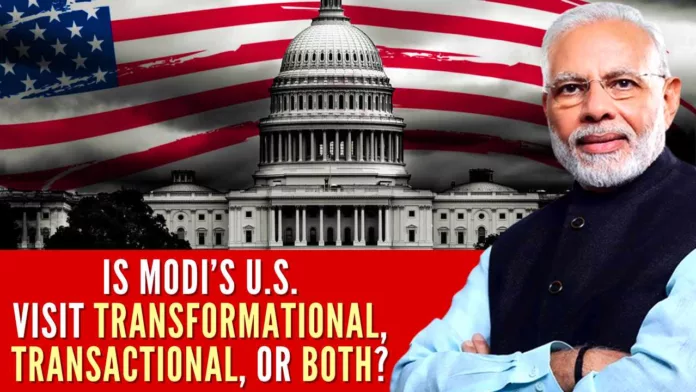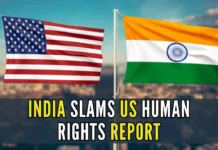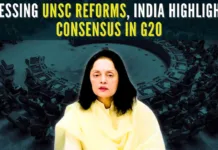
First positive words from The Economist about India & Modi
India, the Elephant, is not only in the boom, but Prime Minister Modi will be in the room (White House) next week as a State Guest of President Biden. It is about time that the weekly magazine The Economist (TE), one of many left-liberal publications in the West, recognizes India as one of the fastest-growing economies. TE, perhaps for the first time, had anything positive to say about India and its undisputed leader Narendra Modi recognizing his approval rating of 77%, by far the world’s most popular elected leader.
Let us first acknowledge TE for providing extensive coverage of all aspects of India with the following titles. The readers may not be able to access the articles unless they are TE subscribers. Nevertheless, they will appreciate the critical issues TE chose to write about.
- Joe Biden and Narendra Modi are drawing their countries closer[1].
- America is courting India in part for its growing economic clout[2].
- India’s foreign minister on ties with America, China, and Russia[3].
- In conversation with Subrahmanyam Jaishankar[4].
- On defence, America and India edge closer together[5].
- India’s diaspora is bigger and more influential than any in history[6].
Let me focus on the few essentials of the first article. The Economist aptly sums up the ties between the largest (India) and the oldest (the U.S.) democracies as, “India does not love the West, but it is indispensable to America.” The magazine, at last, recognized India being indispensable, the truth about the 21st century New India. We will return to India loving the West or not later.
TE in its wisdom or lack thereof characterizes Modi’s trip as ‘transactional.’ Why would TE not call it ‘transformational’ knowing that Modi is coming to the White House on a state visit at Biden’s invitation. On June 22, the red carpet will be rolled out for Modi, the only third such honor by Biden during his Presidency. Only Emmanuel Macron of France and Yoon Suk Yeol of South Korea have been on a state visit. Modi hosted for the state dinner in the White House is reportedly the highest of diplomatic receptions typically reserved for only the closest of allies[7].
Another historical fact is that Modi will address both Houses on Capitol Hill for the second time, a rare honor only a handful like Winston Churchill have enjoyed in the past.
Of equal importance and transformational is Modi’s meeting with the Indian diaspora to promote people-to-people cultural ties between the two countries. The West valuing only transactions will perhaps not understand very deep emotional binding among Indians and Modi being a mastermind in making such relations stronger during every foreign visit.
Why blame TE for its narrow thinking because of its origin in the West which values only business-like transactions and, frankly, loves nobody. The examples below will illustrate why so?
First, the U.S. has ulterior motives to use India as its hedge against China, another elephant with ambitions to be the Superpower that the U.S. once was. One must wonder about the hurried trip by the Secretary of State to China just days before Modi arrives in Washington.
Secondly, the U.S. hopes India to turn away from its old ally, Russia, who has been a friend in need and thus a friend indeed. America has already cajoled and threatened India to align with the West on the Ukraine-Russia conflict. I am afraid, India will be pressured again directly or indirectly during the upcoming visit.
Thirdly, TE states that the Americans hope to strike defence deals, once again, a transaction to bolster the American economy and help grow its corporates. We cannot deny value added defence capabilities of India, which India needs and wants to face its chronic enemies, Pakistan and China, always looking at India with evil eyes.
Fourth, India with the largest population has an enormous capacity to import valuable consumer goods while it successfully builds the ‘AatmaNirbhar’ (self-reliant) and Make in India campaigns.
Arguably, it is not just America but the whole Wild West is transactional. Have you heard of any so-called developmental aid from the developed West to developing countries without any strings? The “aid” is always transactional in nature. For example, when India was not self-sufficient in food production, it became the dumping ground for poor-quality U.S. wheat; India was given D.D.T. which was later found to be toxic.
The people in the aid-recipient countries are subjected to undue pressure and suffering indirectly devaluing their human dignity. Nothing is ever “free” from the West. I would argue it need not be free but the West should not twist its arms to gain favors and make the world bipolar/ multipolar. The labels such as the Developed/ Developing countries, G7, G20, OECD group, and NATO alliance are nothing but ways to divide the world in the Western versus Soviet camp and/ or Communist China.
Coming back to India and loving the West, one must ask if is love only one directional. Does the West love India except when a transactional deal happens. Not too long ago in February, India was loved by America and France when its flagship airline, Air India, ordered a record 470 jets from Boeing and Airbus[8].
India will be loved again when the U.S. and India sign more bilateral trade/ defence/ technology deals during the upcoming trip. I am not arguing against mutually beneficial transactions and ties based on mutual respect but the West hardly ever offered India due respect it deserved. Today, the tides are turning in India’s favor.
India, in fact, loves all countries which was amply visible when India offered Covid vaccine to more than one hundred countries in need. It is India’s ancient cultural and Dharmic values which does not teach us about hate. India strongly believes in Vasudhaiva Kutumbakam (The World is One). Therefore, India loves and trusts the West as much as it does the rest of the world.
TE may have chosen to characterize Modi’s visit to Washington as transactional but in my informed opinion, it is equally historical and transformational. The eyes of the world will be in Washington until Modi heads back to India via Egypt. The visit is more transformational than transactional with Modi’s powerful presence in the White House, his address to both Houses at the Capitol, signing bilateral agreements, and meeting the strong Indian diaspora, soft power and bigger and more influential than any in history.
It is about time that TE and the rest of Western media come to grips that India’s Modi is no longer a silent spectator but a strong spokesperson for world affairs. India, even with Hindu ideology but decidedly secular, stands tall among nations and its charismatic and nationalist leader Modi stands even taller because he speaks not for himself but for the 1.4 billion people of India whom he loves, admires, and wants to see progress. Modi’s well-orchestrated mission and dream is to see India a developed nation by 2047 when it celebrates its 100th anniversary of being free from all forms of colonialism, imperialism, and dynasties.
Modi’s transformational visit to Washington will be followed by India hosting the G20 Summit later this year. It will surely be another opportunity for India to highlight to the world leaders that India does what it believes in i.e., “One World” without the labels of distinction is good for all humankind.
Note:
1. Text in Blue points to additional data on the topic.
2. The views expressed here are those of the author and do not necessarily represent or reflect the views of PGurus.
Reference:
[1] Joe Biden and Narendra Modi are drawing their countries closer – Jun 15, 2023, The Economist
[2] America is courting India in part for its growing economic clout – Jun 13, 2023, The Economist
[3] India’s foreign minister on ties with America, China and Russia – Jun 15, 2023, The Economist
[4] In conversation with Subrahmanyam Jaishankar – Jun 15, 2023, The Economist
[5] On defence, America and India edge closer together – Jun 15, 2023, The Economist
[6] India’s diaspora is bigger and more influential than any in history – Jun 12, 2023, The Economist
[7] What Modi’s Visit to Washington Tells Us About Indian American Voters – Jun 16, 2023, Time
[8] Air India seals record order for almost 500 Airbus, Boeing jets – Feb 15, 2023, Reuters
PGurus is now on Telegram. Click here to join our channel and stay updated with all the latest news and views
For all the latest updates, download PGurus App.
- Education and election in Bharat: Race to the top - April 16, 2024
- Kejriwal: “An Insignificant Man” or a corrupt politician with impending prison term - March 24, 2024
- Bharat’s general elections and the Model Code of Conduct - March 22, 2024










